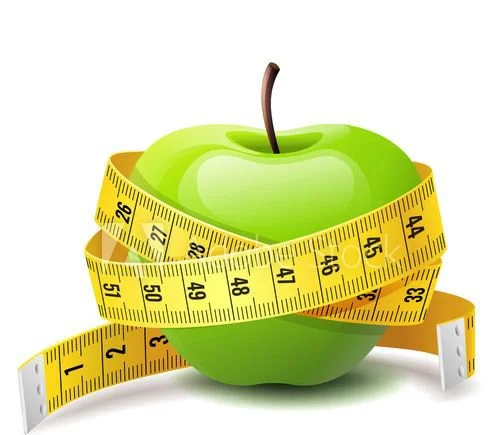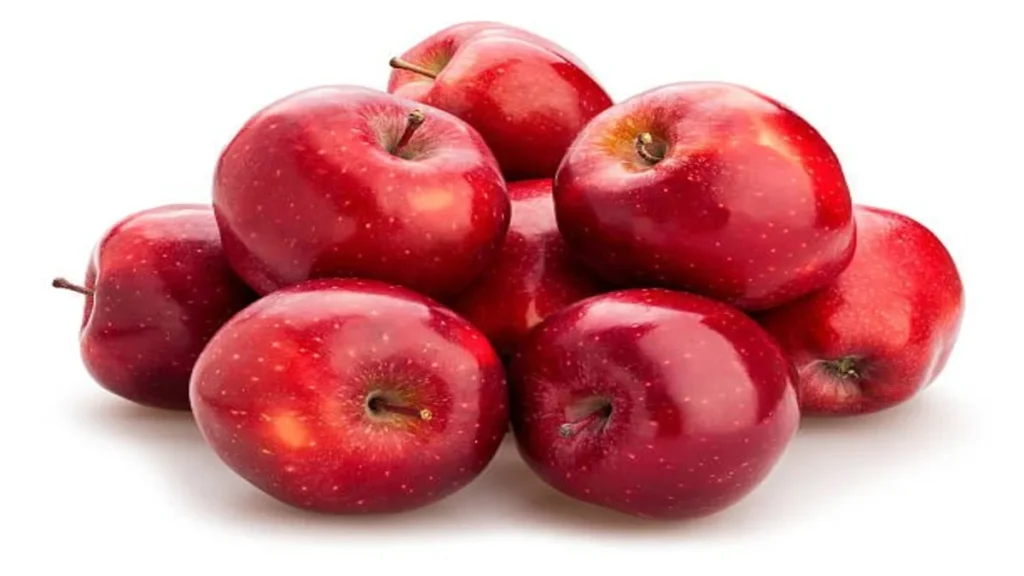Looking to lose weight and improve your health? Explore the benefits of the apple diet with our must-know tips and tricks to get started.
The apple diet is a popular detox and weight-loss regimen that involves consuming mainly apples for a certain period. Apples are packed with essential vitamins, minerals, and fiber, making them a great choice for a healthy diet.
Introduction
In the pursuit of better health and sustainable weight loss, the apple diet has emerged as a popular and effective approach. Bursting with nutritional benefits and versatile in its application, the apple diet offers a holistic way to transform your eating habits and achieve your wellness goals. In this comprehensive guide, we’ll delve into five essential tips for making the most of the apple diet, explore the nutritional benefits of apples, provide delicious recipes, and outline a practical 7-day meal plan to kickstart your journey towards a healthier you.
What is Apple’s diet?

This is a diet in which the participant must follow a new type of diet for five days. The majority of the diet will consist of apples. This requires you to eat apples for breakfast, lunch, and dinner on your first day. On the second day, the apple must be eaten for breakfast and dinner. Between the third and fifth days, a person must have apples, fruit juice, vegetable smoothies, protein shakes, and dairy products in his diet. After following this type of diet, your weight begins to decrease.
Apple diet tips
Tip 1: Embrace the Nutritional Powerhouse of Apples Apples are more than just a tasty snack; they’re nutritional powerhouses packed with essential vitamins, minerals, and antioxidants. A single medium-sized apple contains about 95 calories and provides a significant portion of your daily fiber requirement, aiding digestion and promoting a feeling of fullness. Moreover, apples are rich in vitamin C, an immune-boosting antioxidant that supports overall health. Additionally, apples contain phytonutrients like flavonoids and polyphenols, which have been linked to various health benefits, including reduced risk of chronic diseases such as heart disease and diabetes.
Tip 2: Incorporate Variety into Your Apple Selection While the classic red apple may be the most familiar variety, the apple diet encourages you to explore a diverse range of apple types to reap the full spectrum of nutritional benefits. Varieties like Granny Smith, Fuji, Honeycrisp, and Gala offer unique flavors and textures, ensuring that your diet remains exciting and satisfying. Experiment with different apples in your recipes and snacks to keep your taste buds engaged and maximize your intake of essential nutrients.
Tip 3: Get Creative with Apple-Based Recipes One of the keys to sticking to the apple diet is to get creative in the kitchen. Fortunately, apples are incredibly versatile and can be incorporated into a wide array of dishes, from breakfast to dessert. Start your day with a nutritious apple cinnamon oatmeal or whip up a refreshing apple spinach salad for lunch. For dinner, consider preparing a savory apple-stuffed chicken breast or a hearty apple butternut squash soup. And don’t forget about snacks and desserts – indulge in homemade apple chips, apple slices with almond butter, or a guilt-free apple crisp made with oats and honey.
Tip 4: Practice Mindful Eating and Portion Control While the apple diet can be incredibly beneficial for weight loss and overall health, it’s essential to practice mindful eating and portion control to achieve optimal results. Instead of mindlessly munching on apples throughout the day, take the time to savor each bite and pay attention to your body’s hunger and fullness cues. Additionally, be mindful of portion sizes when incorporating apples into your meals and snacks. While apples are nutritious, consuming them in excess can lead to an excessive calorie intake, thwarting your weight loss efforts.
Tip 5: Stay Hydrated and Maintain a Balanced Diet While the apple diet can be a valuable tool for jumpstarting weight loss and improving overall health, it’s crucial to remember that no single food can provide all the nutrients your body needs. To ensure that you’re meeting your nutritional requirements, complement your apple-centric meals with a variety of other healthy foods, including lean proteins, whole grains, vegetables, and healthy fats. Additionally, staying hydrated is essential for supporting digestion, metabolism, and overall well-being. Aim to drink plenty of water throughout the day, especially if you’re increasing your fiber intake with apples.
Apple nutrition profile

| Nutrient | Amount Per Medium-Sized Apple |
|---|---|
| Calories | 95 |
| Total Fat | 0.3 grams |
| Saturated Fat | 0 grams |
| Trans Fat | 0 grams |
| Cholesterol | 0 milligrams |
| Sodium | 2 milligrams |
| Total Carbohydrates | 25 grams |
| Dietary Fiber | 4.4 grams |
| Sugars | 19 grams |
| Protein | 0.5 grams |
| Vitamin A | 98 IU |
| Vitamin C | 8.4 milligrams |
| Calcium | 11 milligrams |
| Iron | 0.2 milligrams |
| Potassium | 195 milligrams |
Please note that these values are approximate and can vary slightly based on the specific variety of apples.
Apple Diet 7-Day Meal Plan

Day 1:
- Breakfast: Apple cinnamon oatmeal
- Lunch: Apple spinach salad with grilled chicken
- Snack: Apple slices with almond butter
- Dinner: Baked salmon with apple salsa and roasted vegetables
Day 2:
- Breakfast: Greek yogurt parfait with apple slices and granola
- Lunch: Turkey and apple wrap with whole wheat tortilla
- Snack: Apple slices with cottage cheese
- Dinner: Quinoa-stuffed bell peppers with apple cranberry salad
Day 3:
- Breakfast: Apple walnut pancakes with maple syrup
- Lunch: Waldorf chicken salad with apples and grapes
- Snack: Apple slices with cheese
- Dinner: Apple cider pork chops with roasted sweet potatoes and green beans
Day 4:
- Breakfast: Apple cinnamon smoothie with spinach and banana
- Lunch: Apple and walnut chicken salad sandwich on whole grain bread
- Snack: Apple slices with hummus
- Dinner: Apple cider glazed chicken thighs with quinoa and steamed broccoli
Day 5:
- Breakfast: Apple almond butter toast with chia seeds
- Lunch: Apple and cranberry quinoa salad with grilled shrimp
- Snack: Baked apple chips with cinnamon
- Dinner: Apple sage stuffed acorn squash with mixed greens salad
Day 6:
- Breakfast: Apple carrot muffins with Greek yogurt
- Lunch: Apple and avocado tuna salad lettuce wraps
- Snack: Apple slices with peanut butter
- Dinner: Baked chicken breasts with apple and rosemary sauce, served with roasted vegetables
Day 7:
- Breakfast: Apple cinnamon overnight oats
- Lunch: Apple and kale salad with grilled tofu
- Snack: Apple slices with dark chocolate
- Dinner: Butternut squash and apple soup with whole-grain bread
Apple Diet: Risks
The apple diet may have a few issues as well. Potential risks deriving from too many apples are as follows.
Excess Dietary Fiber
Although fiber may benefit gut health and weight loss, too much might create stomach problems. This could include bloating, gas, cramps, or diarrhea. So, balance is essential.
Limited Nutrient Variety
Relying solely on apples for nutrition may reduce the variety of critical elements gained from a wide and balanced diet. A combination of fruits, vegetables, whole grains, lean proteins, and healthy fats may help regulate blood sugar levels, support numerous bodily systems, and aid in weight loss. To lose weight, a varied diet and plenty of physical activity are required.
Conclusion
The apple diet offers a delicious and nutritious approach to improving your health and achieving your weight loss goals. By incorporating a variety of apple-based recipes into your meals and snacks, practicing mindful eating, and maintaining a balanced diet, you can harness the power of apples to enhance your overall well-being. With these five must-know tips and a practical 7-day meal plan, you’ll be well on your way to reaping the benefits of the apple diet and embracing a healthier lifestyle.
FAQs
Can I lose weight by eating only an apple?
Is it good to eat an apple every day?
How many apples should I eat a day?
References:
- PubMed. Varieties, production, composition and health benefits of vinegar: A review [Internet]. [cited 2024 Feb 20]. Available from: https://pubmed.ncbi.nlm.nih.gov/27979138
- ScienceDirect. Your browser is out of date. [Internet]. [cited 2024 Feb 20]. Available from: https://www.sciencedirect.com/science/article/pii/S175646461930605X
- PubMed. Acetic acid upregulates the expression of genes for fatty acid oxidation enzymes in the liver to suppress body fat accumulation [Internet]. [cited 2024 Feb 20]. Available from: https://pubmed.ncbi.nlm.nih.gov/19469536
- National Center for Biotechnology Information (NCBI). Vinegar: Medicinal Uses and Antiglycaemic Effect – PMC [Internet]. [cited 2024 Feb 20]. Available from: https://www.ncbi.nlm.nih.gov/pmc/articles/PMC1785201
- ScienceDirect. Your browser is out of date. [Internet]. [cited 2024 Feb 20]. Available from: https://www.sciencedirect.com/science/article/abs/pii/S1756464618300483
- PubMed. Safety and side effects of apple vinegar intake and its effect on metabolic parameters and body weight: a systematic review [Internet]. [cited 2024 Feb 20]. Available from: https://pubmed.ncbi.nlm.nih.gov/32170375
Disclaimer: The information provided here is for educational/awareness purposes only and is not intended to be a substitute for medical treatment by a healthcare professional and should not be relied upon to diagnose or treat any medical condition. The reader should consult a registered medical practitioner to determine the appropriateness of the information before consuming any medication. Elnodi does not provide any guarantee or warranty (express or implied) regarding the accuracy, adequacy, completeness, legality, reliability, or usefulness of the information; and disclaims any liability arising thereof.





